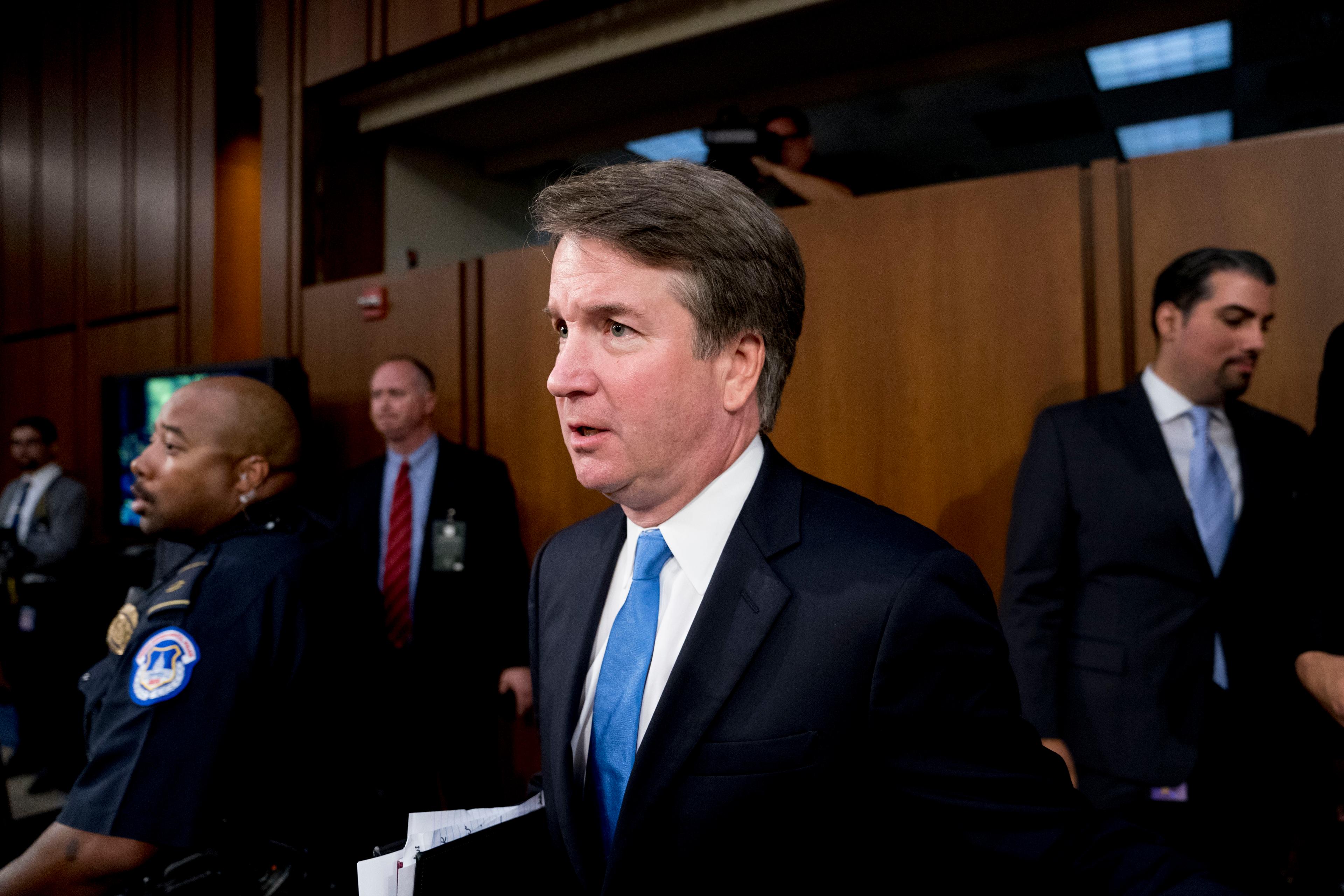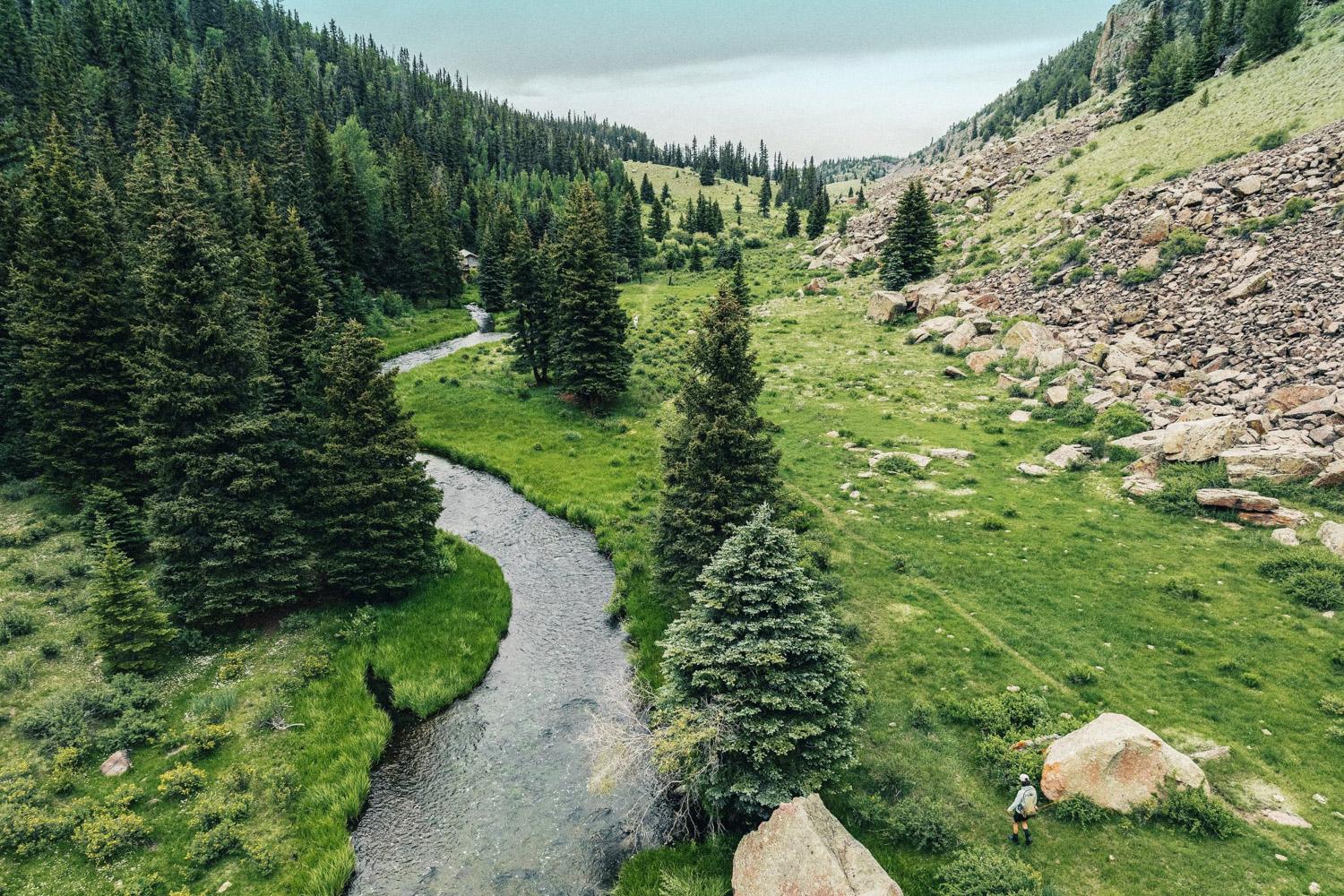
Published 5:30 a.m. | Updated 6:15 p.m.
Supreme Court nominee Brett Kavanaugh faced his first round of questioning from Senators on Wednesday. Kavanaugh fielded questions about his position on abortion and presidential legal privileges.
Demonstrators again disrupted the hearings. Senate Judiciary Committee Chairman Charles Grassley attempted to gavel in the second day of hearings on Wednesday when shouting protesters disrupted the hearings. Grassley said 70 people were arrested during the first day of hearings the day before.
Day 1 Recap: Read More | Watch The Hearing
Republicans invoked Supreme Court Justice Ruth Bader Ginsburg to make the case that Kavanaugh should decline to say how he might vote on any particular case.
Grassley referred to the so-called "Ginsburg standard" Wednesday during the second day of Kavanaugh's confirmation hearings.
Ginsburg said during her 1993 confirmation hearing that it would be wrong for her to "preview in this legislative chamber how I would cast my vote on questions the Supreme Court may be called upon to decide."
As Kavanaugh put it, quoting Ginsburg, that means "no hints, no forecasts, no previews."
Despite her statement, Ginsburg was questioned extensively about abortion during her hearing. She told lawmakers, "It is essential to woman's equality with man that she be the decision maker."
- The Kavanaugh Hearings: 6 Hot-Button Issues To Focus On
Kavanaugh was asked about the Roe v. Wade ruling by Democrat Dianne Feinstein of California. He said the decision has "been reaffirmed many times over the past 45 years." And he noted that a 1992 decision of the court called Planned Parenthood v. Casey didn't just reaffirm Roe v. Wade in passing. He said that decision becomes "precedent on precedent."
The Supreme Court nominee compared the Roe decision to another case, Miranda v. Arizona, which requires law enforcement to tell suspects their rights. Kavanaugh noted that former Chief Justice William Rehnquist had been a critic of the Miranda decision but later upheld it as precedent.
Kavanaugh also refused to say whether a president can be forced to testify in a criminal case, calling it a hypothetical. The topic is front-and-center at Kavanaugh's hearing because President Donald Trump could face a subpoena in special counsel Robert Mueller's investigation.
Feinstein of California, asked Kavanaugh whether he thinks a sitting president can "be required to respond to a subpoena."
Kavanaugh responded: "I can't give you an answer on that hypothetical question."
The Supreme Court has never ruled on a presidential subpoena.
President Bill Clinton was subpoenaed by independent counsel Kenneth Starr in 1998. Clinton eventually agreed to testify voluntarily and the subpoena was withdrawn. Kavanaugh worked for Starr.
Kavanaugh went on to decline to answer questions about the extent of the president's pardon power.
Democratic Sen. Patrick Leahy of Vermont asked Kavanaugh: "President Trump claims he has an absolute right to pardon himself. Does he?"
Kavanaugh responded that the question was a hypothetical one he "can't begin to answer in this context as a sitting judge and as a nominee to the Supreme Court."
Leahy followed by asking whether the president has the ability to pardon someone in exchange for a promise not to testify against him. Kavanaugh declined to answer.
Trump has declined to rule out pardons for people convicted in special counsel Robert Mueller's Russia investigation.
Asked by Sen. Amy Klobuchar Wednesday whether he believes such investigations are only acceptable in impeachment proceedings, Kavanaugh replied: "I did not take a position on the constitutionality. Period."
In a footnote to a 2009 law review article, Kavanaugh wrote that "a serious constitutional question exists regarding whether a President can be criminally indicted and tried while in office."
A decade earlier, Kavanaugh wrote that the Constitution seems to dictate that "congressional investigation must take place in lieu of criminal investigation when the President is the subject of investigation, and that criminal prosecution can occur only after the President has left office."
Republican Sen. Jeff Flake of Arizona tried not once, but twice, to engage Kavanaugh in questions arising from one of Trump's tweets, but the Supreme Court nominee declined to respond.
Flake said he was concerned about the executive branch and asked whether a president should be able to use his authority to carry out directives for political gain. He specifically referred to Trump's tweet against Attorney General Jeff Sessions on Monday, where he complained that criminal charges against two Republican congressmen could hurt the party in the midterm election.
Kavanaugh said maintaining judicial independence "requires me to avoid commenting on current events."
Flake then took Trump out of the question. Kavanaugh still declined to engage in a hypothetical he said closely resembled the earlier one.
Speaking to reporters in the Oval Office as he welcomes the emir of Kuwait to the White House, Trump says he's "happy" with the way the proceedings are going.
Trump says he "saw some incredible answers to very complex questions," when he tuned in to the proceedings. Trump called Kavanaugh "an outstanding judge" who was "born for the position."








